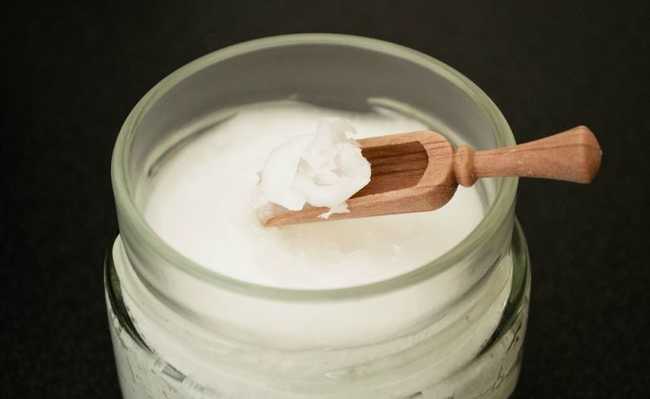What is carrier oil and how to use it
Used to dilute essential oils, carrier oil can be produced from a variety of plant sources.

Edited and resized image by Alan Caishan is available on Unsplash
Carrier oil is a vegetable oil used to dilute essential oils so that the latter can be used on the skin without causing irritation, as they are highly concentrated.
- Essential Oils: A Complete Guide
Most carrier oils are scentless or slightly aromatic and do not interfere with the therapeutic properties of essential oils. They can be used pure or mixed with other oils to nourish the skin.
How to choose carrier oil
There are many types of carrier oil. Most are suitable for use with any essential oil, but you should consider a few things before choosing your carrier oil, including:
- Aroma: Some carrier oils have a distinct odor. When added to an essential oil, it can change its aroma;
- Absorption: Your skin can absorb some carrier oils better than others;
- Skin Type: Depending on your skin type, carrier oil may irritate your skin or make a preexisting condition such as acne worse;
- Shelf life: Some carrier oils can be stored for longer periods than others.
- The Top Seven Foods That Cause Pimples
Carrier oil must be pure and from a manufacturer or online store you trust. Look for cold pressed oils, 100% pure and without additives or preservatives. If you want to use a cooking oil as a carrier oil, choose cold-pressed organic varieties.
- Vegetable coconut oil: benefits and what it is for
The following list includes some of the most popular types of carrier oil used to dilute essential oils in the practice of aromatherapy, massage, and skin care:
- Discover 12 types of massage and their benefits
1. Coconut oil
Coconut oil is an edible oil made from ripe coconut husk. It can be found in both refined and unrefined versions. Unrefined coconut oil is produced from fresh coconut husk. It is not processed with chemicals and retains the original coconut aroma and flavor.
- Coconut oil: know its benefits and learn how to use it
Refined coconut oil is made from dried coconut, also called copra. It is bleached and deodorized to remove contaminants, and does not retain the coconut flavor and aroma. Refined coconut is not entirely natural and is not recommended for use as a carrier oil.
Uses: Coconut oil contains fatty acids and polyphenols that nourish the skin, making it a great carrier oil for massage and skin care preparations.
2. Jojoba oil
Jojoba oil is produced from jojoba seeds and has a delicate nutty aroma. But technically, it's not an oil, but a wax with powerful moisturizing properties that mimic the sebum produced naturally by the skin.
The use of jojoba oil can help reduce the production of oil on the skin in people who are prone to acne.
Uses: Jojoba oil is easily absorbed by the skin and does not clog pores. This makes it a good carrier oil choice for massage, facial moisturizing, and bathing. Learn more about it in the article: "Jojoba oil: what it is for and benefits".
3. Apricot seed oil
This carrier oil is produced from apricot seeds. It is an emollient oil rich in fatty acids and vitamin E. It is easily absorbed by the skin and has a slightly sweet aroma. You can buy edible apricot seed oil or apricot seed oil for cosmetic use only.
Uses: Helps soothe and soothe itchy and irritated skin. Use it as a carrier oil to make massage oils, bath oils, and hair preparations. Learn more about it in the article: "Uses of apricot oil and its properties".
4. Sweet almond oil
Sweet almond oil has a strong, sweet aroma. It is an edible oil made from sweet almond kernels. It is a light oil easily absorbed by the skin and a great moisturizer for dry skin.
It is also used in aromatherapy, but its strong aroma can mask the aroma of an essential oil.
Uses: Sweet almond oil is one of the most popular carrier oils for skin care. It's great in massage oils, bath oils and soaps. Learn more about it in the article: "Sweet almond oil: benefits for beauty and health".
5. Olive oil
Olive oil is produced from pressed olives. It is best known as an edible and healthy oil with a fruity aroma, but it is also used in aromatherapy as a carrier oil.
Extra virgin olive oil is the preferred variety for aromatherapy and skin care preparations. But its aroma can interfere with the aroma of some essential oils.
Uses: It is rich in fatty acids and plant sterols, which makes it great for cleansing and moisturizing dry skin. Use olive oil as a carrier oil for massage, facial cleansers, hair care, and homemade soaps. Learn more about it in the article: "Olive oil: benefits of different types".
6. Argan oil
Argan oil is made from almonds found inside the fruits of argan trees, native to Morocco. It is edible and traditionally used to nourish the body inside and out. It has a nutty aroma and is rich in vitamins A and E and monounsaturated fatty acids.
Uses: It can help treat dry skin and hair, wrinkles and skin inflammation. This makes it a great carrier oil for general skin care and massage oils. Learn more about this carrier oil in the article: "Argan oil: what it is for and how to use it".
7. Rosehip oil
This carrier oil is made by pressing rosehip petals. However, it does not smell of roses, but rather an earthy one.
Uses: Rosehip oil is rich in vitamins A and C. Vitamin A is a natural retinoid that helps fight aging, and both vitamins can help reverse the effects of the sun on the skin. Use it as a carrier oil to treat dry skin, as a massage oil and moisturizer. Learn more about rosehip oil in the article: "Rosehip oil has proven benefits."
8. Grape seed oil
This carrier oil is made from grape seeds. It is a by-product of the winemaking process, being rich in vitamin E, a nutrient that is good for the skin and reduces wrinkles.
Uses: Grapeseed oil is light, easily absorbed by the skin and has a neutral aroma. It is a good carrier oil to use with essential oils to produce body oils and massage oils. Learn more about it in the article: "Grape seed oil: benefits and how to use it".
9. Avocado oil
Avocado oil is a heavy, thick, edible oil. It is rich in oleic acid, a monounsaturated fatty acid that helps moisturize dry, damaged skin.
Uses: Can be a good carrier oil for dry skin - unless you're dealing with acne. Avocado oil can increase sebum production, so if your skin is prone to acne, check with your dermatologist before using. Learn more about avocado oil in the article: "Avocado Oil: Benefits and Uses".
10. Sunflower oil
Sunflower oil is an edible oil extracted from sunflower seeds with a neutral aroma. It acts as a skin barrier against toxins and germs that cause infection, making it a great choice for irritated skin.
- Germs: understand what they are and know how to prevent
Uses: It helps to smooth the skin, moisturize and relieve irritation; therefore, it can be added to massage oils or used for general skin care.
How to mix carrier oil with essential oils
Whenever possible, purchase a cold-pressed carrier oil from a manufacturer you trust. Although most carrier oils do not cause an allergic reaction, you should always test them before using.
To run an allergy test:
- Add a small amount of carrier oil to the inside of the wrist or just below the ear;
- Cover the oil with a bandage;
- Leave for 24 hours;
- If irritation occurs, wash thoroughly and avoid future use.
If you are allergic to oilseeds, you should not use oils derived from them. This includes sweet almond oil, argan oil and apricot seed oil.
When diluting essential oils in a carrier oil, it is important to follow these dilution guidelines.
For adults:
- 2.5% dilution: 15 drops of essential oil per 6 tablespoons of carrier oil
- 3% dilution: 20 drops of essential oil per 6 tablespoons of carrier oil
- 5% dilution: 30 drops of essential oil per 6 tablespoons of carrier oil
- 10% dilution: 60 drops of essential oil per 6 tablespoons of carrier oil
For kids:
- 0.5 to 1% dilution: 3 to 6 drops of essential oil to 6 tablespoons of carrier oil. But remember that not all essential oils can be used on the skin. Use with medical advice.
Always store carrier oil in a cool, dark place, preferably in the refrigerator. You should also keep them in a dark glass bottle.










